
London's Apartment House in a quintet configuration performs four chamber works by Slovakian composer Adrian Democ, plus the Czech ensemble Ostravska Band / Fama Q performing one composition; gentle music of deceptive simplicity, using color, shade and hue through unique orchestration, his works built upon creative foundations steeped in historic reference.
Out of Stock
Quantity in Basket: None
Log In to use our Wish List
Shipping Weight: 3.00 units
Sample The Album:
Anton Lukoszevieze-cello
Heather Roche-clarinet
Apartment House-ensemble
Philip Thomas-piano
Mira Benjamin-violin
Chloe Abbott-trumpet
Adrian Democ-composer
Click an artist name above to see in-stock items for that artist.
Label: Another Timbre
Catalog ID: at147
Squidco Product Code: 28333
Format: CD
Condition: New
Released: 2019
Country: UK
Packaging: Cardboard Gatefold
Tracks 1-3 and 5-7 recorded at St. Paul's Hall, the University of Huddersfield, and at Dethick Chruch, Derbyshire, June 2019, by Simon Reynell.
Track 4 recorded live at Ostrava Conservatory, in Czech Republic, on August 9, 2015.
Another Timbre Interview with Adrián Demoč
Could you tell us about your background, and how you came to experimental / contemporary music?
I started having piano lessons at the age of 6. Although I didn't really appreciate the drill, I enjoyed sitting at the piano and wrote some first "pieces". Aside from that, from a very early age I was an "other music" freak. Early fascinations included (black) metal from the 90's, Slovak folklore and jazz. Simply music which was somehow wilder and, to my ears, much freer than the standard classical repertoire which I was playing on the piano.
I started composing at grammar school, mostly "prelude-like" pieces for piano, but I also tried some chamber stuff (combining wine glasses, accordion and cimbalom), and wrote a very short orchestral piece, now lost somewhere. At grammar school there was a nice art teacher who supported my eagerness for otherness in music, art and literature. She gave me as a gift a huge collection of old LPs from the school (which nobody was listening to anymore). I used to spend whole days and weekends listening to them. I remember discovering Stravinsky and some Polish composers (Lutosławski and Górecki in particular) at that time. That music was decisive for me: I simply couldn't believe that "classical music" made on acoustic instruments could bear such emotional strength. Another important composer was Messiaen (La Nativité du Seigneur); I simply loved those chords and static moments.
Sometime later I discovered the music of Pärt (Passio) and Feldman (Rothko Chapel). That was another discovery of equal impact and importance: that you could also "speak" quietly and calmly, without sharp contrasts within the form, that you could create wonderful "music" with silence and "just a few pitches". Or, in other words, I discovered that music could also breathe.
Regarding my academic training, after grammar school I studied composition at the Janáček Academy in Brno, Czech Republic, and also spent some time studying in Bucharest and Vilnius, which was certainly an enriching experience. I finished my academic studies in 2011. After several years I visited an institute for composers in Ostrava, Czech Republic (in 2015 and 2017) to have some intensive exchange.
I feel I was fortunate to meet and study with several wonderful composers, who surely had an influence on me (Martin Smolka, Osvaldas Balakauskas, Doina Rotaru or František Emmert). And of course, I continue(d) to discover a lot of other composers and music which I found inspiring, for example: Tomasz Sikorski, Bronius Kutavičius, Paweł Szymański, Rytis Mažulis, Gérard Grisey, ars subtilior, to name just a few.
Can you describe the contemporary music scene in Slovakia - how easy is it to survive as a contemporary composer in Eastern Europe?
I haven't studied, nor lived my adult life, in Slovakia, so I don't feel that I'm personally involved with its music scene. Musical life there is centred in Bratislava, where I have never lived. I think that I'm more in touch with Slovak poets or dancers than musicians. But there are certainly several interesting composers and musicians. I especially like the music from the 90's - composers around VENI ensemble, who also did a great job in performing some older Slovak contemporary/experimental music from the 60's. Another inspiring figure was Milan Adamčiak, whose wonderful work consisting of graphic scores, visual/concrete poetry and happenings was published in its entirety just before his death a couple of years ago.
And for many years I have been working intensively with Slovak violinist/violist Milan Paľa.
But it seems that there are nowadays several ensembles bringing some fresh air into Slovak music culture (Veni Academy, ensemble Ricercata, Cluster ensemble, ensemble Spectrum).
I don't think it's possible to survive as a contemporary composer in Slovakia. But I've got some good friends from the Czech Republic who are (at least partly) able to make their living as composers. However they mostly receive commissions from - and in many cases live - abroad, mostly in Germany.
So where are you living, and what do you do to make a living at the moment?
I live in a fairly small town in Spain. I usually teach music. I used to work as a piano teacher, but in recent years I've also worked as a music teacher at various school centres (pre-school, centre for special education, secondary education).
Can you talk about some of the pieces on the CD, starting with the first piece, Kvarteto, which is very distinctive, and has two movements which are very different in feel? How did the piece develop, and why the extraordinary Canon movement?
After a few years of exploring dense microinterval clusters and rather static, slower processual textures in several compositions, I felt a need to look again at other elements: melody with more "naked intervals" (often "detuned" with the aid of natural harmonics), simpler chords, movement-structured composition, and even simple pulse or clearly defined rhythm and timbre. I simply needed some new air. Kvarteto was composed in 2015, together with its musical "sibling" Žiadba - the solo violin piece that concludes the CD. I don't usually write two or more pieces at the same time, but in this case I made an exception. I started both pieces from the same material which form the first movement and then developed other strategies. Žiadba was from the beginning conceived as a two-movement composition.
Kvarteto, however, was first a longer four-movement piece, composed originally as a string quartet (which hasn't been performed yet). After completing the piece I removed one movement which was too complex rhythmically and I didn't feel it made a sense within the context. Later I re-orchestrated the piece for cimbalom (or piano), clarinet, violin and cello. There were several performances of Kvarteto as a three-movement piece. But finally I decided to remove another movement and keep its form as a "diptych" of two clearly defined movements. About the "canon": after having the single -voice melody, I was experimenting with it as a material for four voices. I've tried many things, even wrote another (string) quartet during that time. But finally I decided to keep the voice and pulse of the basic material almost intact in every voice and use a very dense canon, with the distance of a 16th note. I was also interested in listening to this canon in a more "monochromatic" sound, so I created another version for four alto flutes.
As to the second piece, who was the dedicatee - Luca Marenzio, and how does the piece work?
Luca Marenzio was an Italian composer from the late Renaissance, known for his madrigals, which are often highly chromatic. In the first section of his beautiful piece Solo e pensoso i piú deserti campi he uses a fascinating, almost conceptually patient chromatic rise (and incomplete fall) of one of the voices. As a listener, I just felt a bit sorry that this wonderful hypnotic texture passes by so quickly. My homage was therefore (partially) written as a peaceful "conversation about music" without the limits of time and history. The chromaticity is here replaced by a "scale" made of the natural harmonics of the cello in the range of two octaves. Their "rise" and "fall" form the backbone of the form of the piece. Marenzio's florid counterpoint (which is wonderful, by the way!) has been replaced with a calm and homophonic three-voice texture, although the harmony I use is completely different; I haven't used any of Marenzio's chords or progressions. By the way, I first read about Marenzio's piece in an interview that Chiyoko Szlavnics conducted with Peter Ablinger.
I think Modré Kvety is a particularly beautiful piece. Its gentleness and use of simple melodic elements fit well within the current aesthetic of Another Timbre, but is it typical of your recent music, and how did you come to write a piece like this?
I would say both as a listener and composer I tend to prefer "gentle and soft", non-violent music, although I'm also always searching for different shades, possibilities and discoveries within this very broad category. But sometimes I also feel a need to break out for a moment and search for liveliness and stronger expression (for example, my piece from 2016 called Struny: steny, zhluky, sny for string orchestra), although I haven't written anything "wild" recently. But whatever the material, be it gentle or expressive, I think I'm still searching for some kind of clarity and simplicity, but a kind of simplicity or nakedness which still fascinates, which is a tricky and complicated issue.
I think of three of my works from 2018: Modré kvety, A Luca Marenzio and an orchestral piece called Neha as a "Czech trilogy", as all these pieces were commissioned and premiered there (or Neha will be premiered in November 2019). Although each piece is somehow different, they all deal with simplified harmonic/melodic material, natural harmonics, one-movement monolithic composition and general softness. I also feel that the composition process was somehow similar: maybe more "diary-like". I felt somehow more relaxed about the music, just listening to the sketches, playing/singing to chords and pitches over and over, without any pre-compositional plan. After any change of any pitch, chord or duration I would start playing/singing/listening from the very beginning.
I've recently made a few more chamber pieces where I go on with this approach. But I'm starting to feel the need to explore new paths, strategies, depths. I still don't really know what it means and where it will lead.
And finally Septett: what's the story behind that piece, which is a slightly older work than the other compositions on the disc?
In 2011 the German ensemble Streichseptett Heiligenberg organised a portrait concert dedicated to my teacher Martin Smolka. He very kindly suggested to them that I, as his student at that time, should also write a piece for them for that occasion.
At the beginning there was a tempting opportunity to write a piece for a very unusual string septet: descant (a kind of high violin), 2 violins, viola, tenor (or high) cello, cello and double bass with an added low string. It was also inspiring that each instrument was made from the wood of a different tree. The tempting aspect for me at that time was mainly the pairing of "usual" with "unusual" instruments.
In those years I was focused on monochromatic instrumentation and was exploring clusters of different densities (writing rather utopian pieces, which are hard to perform due to their instrumentation). Within these clusters some simpler elements are usually hidden, which for me form some of the basic elements of music (a simple triad, or a fragment of a melody) which have to be "excavated".
In Septett I "hid" simple triads (g-minor, d-minor) which gradually become clearer within the musical process. These chords slowly become slightly out of tune because of the natural harmonics (mostly 7th) which replace the more "well-tuned" pitches. Amongst other things, I also had on my mind the velvety sound of the fujara (a traditional Slovak flute).
In 2015 I rewrote the piece for standard instruments for the Ostrava Days festival. I wanted to use two different kinds of mutes (a standard, and a practice metal mute) and thus divide the ensemble into two slightly different trios (vn-vla-vc) with the unmuted doublebass situated inbetween. But during the rehearsals fascinanting things started to happen: the muted instruments were reluctant to spread the rainbows of different spectra, which clash into each other during the piece, especially in the opening texture. So finally the musicians played without mutes, even in the softest dynamics.
The composition is dedicated to Gérard Grisey, for his enthusiasm for working with unclear roles of individual parameters. However, I must also thank Martin Smolka, both for the wonderful suggestion that I should write this piece, and later for the surprise he gave me by sending to me Bohumil Hrabal's Tender Barbarian at exactly the most decisive moment of composing the piece.

The Squid's Ear!
Artist Biographies
• Show Bio for Anton Lukoszevieze "Cellist Anton Lukoszevieze (born 1965 in the UK) is one of the most diverse performers of his generation and is notable for his performances of avant-garde, experimental and improvised music. Anton has given many performances at numerous international festivals throughout Europe and the USA (Maerzmusik, Donaueschingen, Wien Modern, GAS, Transart, Ultima, etc.etc.). He has also made frequent programmes and broadcasts for BBC Radio 3, Danish Radio, SR2, Sweden, Deutschland Rundfunk, WDR, Germany and ORT, Austria. Deutschlandfunk, Berlin produced a radio portrait of him in September, 2003. Anton has also performed concerti with the City of Birmingham Symphony Orchestra at the 2001 Aldeburgh festival and the Netherlands Radio Symphony Orchestra. He has collaborated with many composers and performers including David Behrman, Alvin Lucier, Amnon Wolman, Pierre Strauch, Rytis Mazulis, Karlheinz Essl, Helmut Oehring, Christopher Fox, Philip Corner, Alvin Curran, Phill Niblock and Laurence Crane, He is unique in the UK through his use of the curved bow (BACH-Bogen), which he is using to develop new repertoire for the cello. From 2005-7 he was New Music Fellow at Kings College, Cambridge and Kettles Yard Gallery. Anton is the subject of four films (FoxFire Eins) by the renowned artist-filmmaker Jayne Parker. A new film Trilogy with compositions by Sylvano Bussotti, George Aperghis and Laurence Crane premieres at The London Film Festival, October 2008. In November will premiere a new hour long work by Christopher Fox for cello and the vocal ensemble Exaudi commissioned by the Huddersfield Contemporary Music Festival and will also present new solo works for cello and live electronics. Anton is also active as an artist, his work has been shown in Holland (Lux Nijmegen), CAC, Vilnius, Duisburg (EarPort), Austria, (Sammlung Essl), Wien Modern, The Slade School of Art, Kettles Yard Gallery, Cambridge Film Festival and Rational Rec. London. His work has been published in Musiktexte, Cologne, design Magazine and the book SoundVisions (Pfau-Verlag, Saarbrucken, 2005). Anton Lukoszevieze is founder and director of the ensemble Apartment House, a member of the radical noise group Zeitkratzer and recently made his contemporary dance debut with the Vincent Dance Company in Broken Chords, Dusseldorf." ^ Hide Bio for Anton Lukoszevieze • Show Bio for Heather Roche "Born in Canada, clarinetist Heather Roche trained in England, lived in Germany for 7 years and now lives in London. She has performed at some of the major European festivals, including musikFest (Berlin), BachFest (Leipzig), Musica Nova (Helsinki), Acht Brücken (Cologne), the International Computer Music Conference (Huddersfield, Ljubljana), the Dias de Música Electroacústica (Seia, Portugal) and the Agora Festival (Ircam, Paris). She has also performed solo programmes at the Zagreb Music Biennale, the Huddersfield Contemporary Music Festival, the New York Electroacoustic Symposium, at CIRMMT (Montreal), Unerhörte Musik (Berlin), Eavesdropping (London), and with the Birmingham Electroacoustic Sound Theatre (BEAST). She has performed with ensembles and orchestras including Musik Fabrik (Cologne), the WDR Orchestra (Cologne), mimitabu (Gothenburg), the London Symphony Orchestra (London), ensemble Garage (Cologne), ensemble interface (Berlin), the Riot Ensemble (London), the Alisios Camerata (Zagreb), and ensemble proton (Bern). She also plays across the UK in a trio with Carla Rees (flutes) and Xenia Pestova (piano) and in 2015 formed an duo with the accordionist Eva Zöllner, with whom she has played across Germany, the UK and in Portugal. She is a founding member of hand werk, a 6-person chamber music ensemble based in Cologne, and worked with the group from 2010-2017. She has solo CDs out on the HCR/NMC and Métier labels. Please see the Discography for further details. In 2014 she was awarded a DIVA (Danish International Visiting Artists Fellowship), and lived in Copenhagen for two months. Since 2016 she has acted as the Reviews Editor for TEMPO, a quarterly journal for contemporary music published by Cambridge University Press. Her website is host to one of the most widely read new music blogs on the Internet. In 2017 it had 75,000 hits from around the world. She successfully crowdfunded in 2014 in order to host her first composition competition. Six young composers were chosen out of 270 applicants to write new pieces, which were premiered in 2016. She is a fervent advocate of collaboration, and her PhD research at the University of Huddersfield (under the supervision of Dr. Philip Thomas) explored the nature of dialogue within performer-composer relationships. She has given workshops in instrumental technique and/or iPad use in performance all over Europe, for example in London, Munich and Copenhagen. Heather completed her Masters of Music (Orchestral Training) in 2006 at the Guildhall School of Music and Drama in London, studying under Joy Farrall and Laurent Ben Slimane, in addition to conducting with Sian Edwards. Following her degree she completed residencies with the International Ensemble Modern Academy, at IMPULS in Graz and with ensemble recherche in Freiburg, the Darmstadt Summer Courses 2008 and 2010 and the International Ensemble Modern Academy in Innsbruck, Austria. She has performed in masterclasses with Michael Collins, Ernesto Molinari and Shizuyo Oka, to name a few. She completed her BMus in 2005 at the University of Victoria, Canada, studying under Patricia Kostek." ^ Hide Bio for Heather Roche • Show Bio for Philip Thomas "Philip Thomas (b.1972, North Devon) specialises in performing new and experimental music, including both notated and improvised music. He places much emphasis on each concert being a unique event, designing imaginative programmes that provoke and suggest connections. He is particularly drawn to the experimental music of John Cage, Morton Feldman and Christian Wolff, and composers who broadly work within a post-Cageian aesthetic. In recent years he has been particularly associated with the music of Christian Wolff, giving the world premiere of his Sailing By in 2014 and Small Preludes in 2009, the UK premiere of Long Piano (Peace March 11), having co-edited and contributed to the first major study of Wolff's music, Changing the System: the Music of Christian Wolff, published by Ashgate Publications in 2010, and currently recording all of Wolff's solo piano music for sub rosa. He is an experienced performer of John Cage's music, having performed the Concert for piano and orchestra with both Apartment House and the Merce Cunningham Dance Company as well as most of the solo piano and prepared piano music, including a unique 12-hour performance of Electronic Music for piano He has commissioned new works from a number of British composers whose ideas, language and aesthetic have been informed in some ways by the aforementioned American composers, such as Stephen Chase, Laurence Crane, Richard Emsley, Christopher Fox, Bryn Harrison, John Lely, Tim Parkinson, Michael Parsons, and James Saunders. In recent years Philip has pursued a passion for freely improvised music, after significant encounters with the music of AMM and Sheffield-based musicians Martin Archer, Mick Beck and John Jasnoch. He has worked with improvisers in a variety of contexts and recently devised a programme of composed music by musicians more normally known as improvisers as well as others who have been influenced by improvisation in some form. This led to a CD release, Comprovisation, which featured newly commissioned works by Mick Beck, Chris Burn and Simon H Fell. Other CD releases include music by Martin Arnold, Laurence Crane, Christopher Fox, Jürg Frey, Bryn Harrison, Tim Parkinson, Michael Pisaro, James Saunders, Christian Wolff, as well as with improvisers Chris Burn and Simon H Fell. Philip is a regular pianist with leading experimental music group Apartment House, with whom he has performed in festivals across the UK and Europe. He has also performed with the Quatuor Bozzini, and in duos with Mark Knoop, Ian Pace and John Tilbury (piano duet and two pianos) and James Saunders (electronics). In 1998 Philip was awarded a PhD from Sheffield University in the performance practice of contemporary piano music. Between 2000 and 2005, he was Head of the Sheffield Music School whilst pursuing an active performing and teaching career. He joined the staff team at the University of Huddersfield in 2005, and became Professor of Performance in 2015. Philip is one of the Directors of CeReNeM, the University's Centre for Research in New Music. He continues to live in Sheffield, where he premieres the majority of his programmes, with his wife Tiffany and children Naomi and Jack." ^ Hide Bio for Philip Thomas • Show Bio for Mira Benjamin "Mira Benjamin is a Canadian violinist, researcher and new-music instigator. She performs new and experimental music, with a special interest in microtonality & tuning practice. She actively commissions music from composers at all stages of their careers, and develops each new work through multiple performances. Current collaborations include new works by Anna Höstman, Scott McLaughlin, Amber Priestley, Taylor Brook and James Weeks. Since 2011, Mira has co-directed NU:NORD - a project-based music and performance network which instigates artistic exchanges and encourages community building between music creators from Canada, Norway & the UK. To date NU:NORD has engaged 79 artists and commissioned 62 new works. Through this initiative, Mira hopes to offer a foundation from which Canadian artists can reach out to artistic communities overseas, and provide a conduit through which UK & Norwegian artists can access Canada's rich art culture. Originally from Vancouver, British Columbia, Mira lived for ten years in Montréal, where she was a member of Quatuor Bozzini. Since 2014 she has resided in London (UK), where she regularly performs with ensembles such as Apartment House, Decibel, and the London Contemporary Orchestra Soloists, and is currently the Duncan Druce Scholar in Music Performance at the University of Huddersfield. Mira is the recipient of the 2016 Virginia Parker Prize from the Canada Council for the Arts. The prize is awarded annually to a Canadian musician in recognition of their contribution to the artistic life in Canada and internationally." ^ Hide Bio for Mira Benjamin • Show Bio for Chloe Abbott "Chloë Abbott is a British trumpet player, musician and curator. She is the first ever female trumpeter to be cast as 'Michael' in Stockhausen's Licht, for performances of Luzifer's Tanz in The Holland Festival 2019. Chloë has recorded a CD for the label Another Timbre with the UK-based group, Apartment House; recorded for the BBC with Music We'd Like to Hear and An Assembly, performed the solo part in Richard Ayres' 'Noncerto 31; played in a musical pilgrimage with the 'Trumpets aus Licht' at Klangspuren; collaborated closely with contemporary choreographer Sze Chan as part of a movement and sound exploration called WYSIWYG (What You See Is What You Get), performed with Ensemble Modelo62, and worked with various London-based new music collectives. Recent performances in 2017/18 include being selected to join the Ulysses Ensemble at Ircam's Manifeste Academy, Aldeburgh Music, Voix Nouvelles Academy at the Royaumont Foundation and collaboration with IEMA as well as workshops and open spaces at Darmstadt Ferienkurse 2018. In these projects she has worked with conductors and composers such as Beat Furrer, Helmut Lachenmann, Lucas Vis, Peter Rundel, Heinz Holliger, Jean-Philippe Wurtz, Rebecca Saunders and Milica Djorjevic. She also both performed in and curated a contemporary concert day at the Musique Cordiale Festival in southern France in August 2017. She graduated from the Guildhall School of Music and Drama in 2015, she completed both an MMus and BMus Hons. She studied under John Kenny, Noel Langley, Paul Cosh, Paul Beniston, Steve Keavy and Will O'Sullivan. Whilst at Guildhall Chloë was also a Britten-Pears Young Artist during 2014 and 2017. She has begun further studies at Koninklijk Conservatorium Den Haag, on the unique new music course - Master Aus Licht - studying intensely with Marco Blauuw, focusing primarily on Stockhausen repertoire, but also covering a wide range of new and recent repertoire for the trumpet. Chloë has performed in masterclasses with Hakan Hardenberger, Thierry Caens, Tine Thing Helseth, David Blackadder, Alison Balsom, Patrick Harrild and Philip Cobb. She has performed with the London Symphony Orchestra, The Tallis Society, London Handel Society, London Arts Orchestra and Jersey Chamber Orchestra in venues such as Dutch National Opera House, Centquatre, TivoliVredenburg, Cafe Oto, Centre Pompidou, Barbican Hall, Wigmore Hall, Cadogan Hall, The Place and LSO St Lukes, playing both baroque, classical and new contemporary repertoire for trumpet." ^ Hide Bio for Chloe Abbott • Show Bio for Adrian Democ "Adrian Demoč is a composer and occasional performer and improviser (fujara, piano). He studied with Martin Smolka, Frantisek Emmert, Doina Rotaru and Osvaldas Balakauskas in Brno, Bucharest and Vilnius. In 2008, Adrian received the Leoš Janáček foundation prize and later continued his doctorate studies with Martin Smolka (his thesis "Spectral music and its perception of time" was published in 2012), obtaining a PhD. In 2010 he was the head of the jury of the music discipline at NEU/NOW Nantes festival organized by ELIA European League of Institutes of the Arts. In 2011 he was the selected composer for the United Nations Youth Orchestra (Benasque, Spain) with his piece Three movements for string orchestra (2011). Adrian's music has been performed so far in Slovakia, Czech Republic, Germany, Austria, Romania, Lithuania, France, Spain and USA. His music ranges from orchestral (Symphony, Zikkurat) and chamber music to conceptual scores (Chess) and multi-media performances (Bioprodukt)." ^ Hide Bio for Adrian Democ
11/20/2024
Have a better biography or biography source? Please Contact Us so that we can update this biography.
11/20/2024
Have a better biography or biography source? Please Contact Us so that we can update this biography.
11/20/2024
Have a better biography or biography source? Please Contact Us so that we can update this biography.
11/20/2024
Have a better biography or biography source? Please Contact Us so that we can update this biography.
11/20/2024
Have a better biography or biography source? Please Contact Us so that we can update this biography.
11/20/2024
Have a better biography or biography source? Please Contact Us so that we can update this biography.
Track Listing:
1. Kvarteto 1 4:51
2. Kvarteto 2 5:47
3. A Luca Marenzio 14:26
4. Septett 9:34
5. Modre Kvety 15:34
6. Ziadba 1 1:51
7. Ziadba 2 11:22
Compositional Forms
Quintet Recordings
European Improvisation, Composition and Experimental Forms
London & UK Improv & Related Scenes
New in Compositional Music
Search for other titles on the label:
Another Timbre.

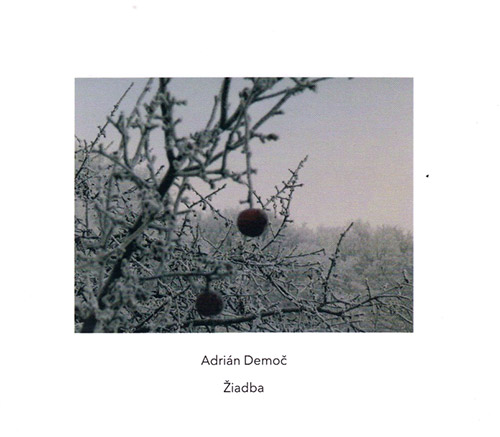
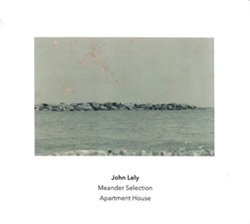
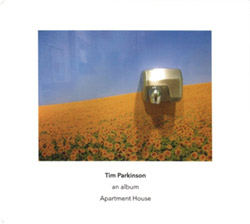
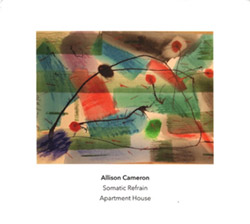
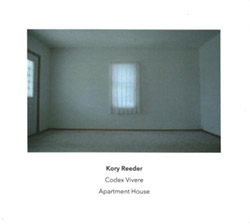
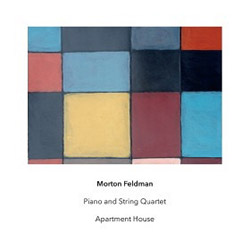
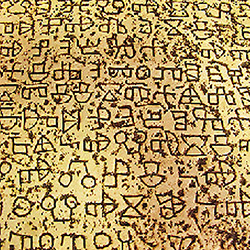


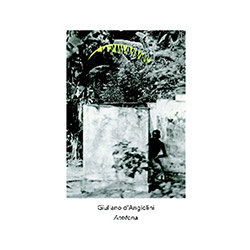
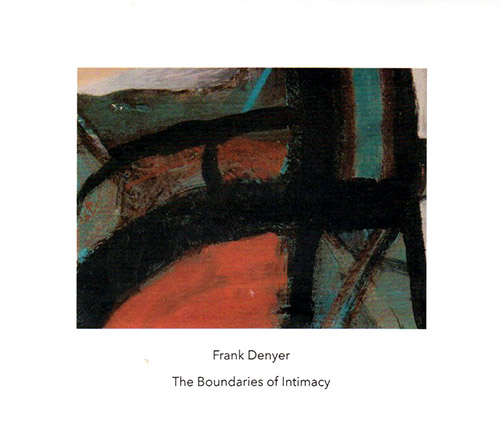

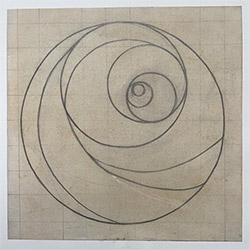
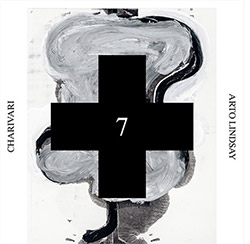
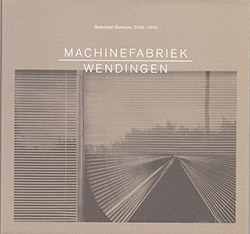
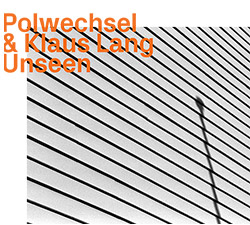
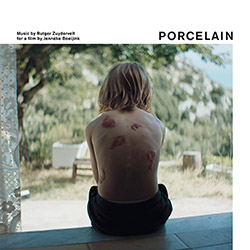
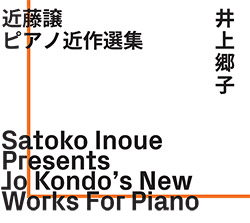
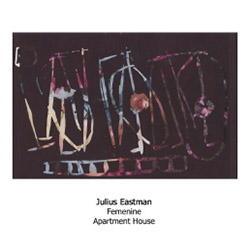
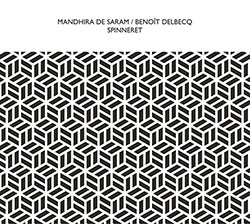


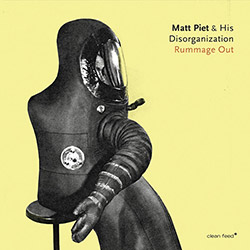






![Guy, Barry / Ken Vandermark: Occasional Poems [2 CDs]](https://www.teuthida.com/productImages/misc4/34849.jpg)
![Novoa / Carter / Mela Trio: Vol.1 [VINYL]](https://www.teuthida.com/productImages/misc4/35236.jpg)


![Elephant9 : Mythical River [VINYL]](https://www.teuthida.com/productImages/misc4/34624.jpg)
![Evans, Peter (Evans / Eldh / Black): Extra [VINYL]](https://www.teuthida.com/productImages/misc4/35279.jpg)

![McPhee, Joe: Straight Up, Without Wings [BOOK]](https://www.teuthida.com/productImages/misc4/35454.jpg)
![Jeck, Philip: rpm [2 CDs]](https://www.teuthida.com/productImages/misc4/35455.jpg)













![Barker / Parker / Irabagon: Bakunawa [VINYL]](https://www.teuthida.com/productImages/misc4/35533.jpg)
![Blaser, Samuel / Marc Ducret / Peter Bruun: Dark Was The Night, Cold Was The Ground [VINYL 10-inch]](https://www.teuthida.com/productImages/misc4/35492.jpg)








![Warren, Kenny (Warren / Hoffman / Ellman): Sweet World [VINYL]](https://www.teuthida.com/productImages/misc4/35451.jpg)




![Blake, Ran / Dave Knife Fabris: Live Amsterdam 2006, First Visit [CD + POSTCARDS]](https://www.teuthida.com/productImages/misc4/35275.jpg)













![DNS: Taking Big Bites Of The Khandas Three Cafes Deep [2 CDs]](https://www.teuthida.com/productImages/misc4/35334.jpg)




![Cleaver, Gerald: The Process [VINYL]](https://www.teuthida.com/productImages/misc4/34966.jpg)




![Alva Noto: HYbr:ID II [VINYL 2 LPs]](https://www.teuthida.com/productImages/misc4/35201.jpg)

![Baron, Derek / Luke Martin: Distinct and Concealed [CASSETTE + DOWNLOAD]](https://www.teuthida.com/productImages/misc4/35079.jpg)

![Lyle, Erica Dawn : Colonial Motels [CASSETTE + DOWNLOAD]](https://www.teuthida.com/productImages/misc4/35080.jpg)









![Sanna, Claudio: Compositori Sardi Contemporanei II [2 CDs]](https://www.teuthida.com/productImages/misc4/35317.jpg)







![Zurria, Manuel: Fame di Vento [3 CDs]](https://www.teuthida.com/productImages/misc4/35167.jpg)

![Granberg, Magnus / Nattens Inbrott / Skogen: Holde Traume, Kehret Wieder! [2 CDs]](https://www.teuthida.com/productImages/misc4/35038.jpg)
![Frey, Jurg: Outermost Melodie [2 CDs]](https://www.teuthida.com/productImages/misc4/35039.jpg)

![Pavone, Jessica: Reverse Bloom [VINYL]](https://www.teuthida.com/productImages/misc4/34895.jpg)




![Modney (Modney / Wooley / Gentile / Roberts / Pluta / Symthe / ...): Ascending Primes [2 CDs]](https://www.teuthida.com/productImages/misc4/34852.jpg)









![Elephant9 with Terje Rypdal: Catching Fire [VINYL 2 LPs]](https://www.teuthida.com/productImages/misc4/35355.jpg)
![Deerlady (Obomsawin, Mali / Magdalena Abrego): Greatest Hits [VINYL]](https://www.teuthida.com/productImages/misc4/34876.jpg)




![Haino, Keiji: Black Blues [2 CDs]](https://www.teuthida.com/productImages/misc4/35109.jpg)



![Surplus 1980: Illusion of Consistency [CD]](https://www.teuthida.com/productImages/misc4/35069.jpg)
![Staiano, Moe: Away Towards the Light [VINYL + DOWNLOAD]](https://www.teuthida.com/productImages/misc4/35037.jpg)



![Caveira (Gomes / Sousa / Abras / Ferrandini): Ficar Vivo [VINYL]](https://www.teuthida.com/productImages/misc4/34643.jpg)
![Gregg, J. J. / David Van Auken: Lunar Prairie [CD w/ DOWNLOAD]](https://www.teuthida.com/productImages/misc4/34611.jpg)

![Coultrain: Mundus [VINYL]](https://www.teuthida.com/productImages/misc4/32439.jpg)
![Mattin: Songbook #6 [VINYL]](https://www.teuthida.com/productImages/misc4/27317.jpg)
![Punkappella: Wake Up [7-inch VINYL]](https://www.teuthida.com/productImages/misc4/17519.jpg)
![Residents, The: WARNING: UNiNC.: Live And Experimental Recordings 1971-1972 [VINYL 2 LPs]](https://www.teuthida.com/productImages/misc4/31521.jpg)
![Coultrain: Phantasmagoria [VINYL]](https://www.teuthida.com/productImages/misc4/30142.jpg)
![Lennon, Sean Ono: Asterisms [VINYL]](https://www.teuthida.com/productImages/misc4/34517.jpg)

![Coley, Byron: Dating Tips for Touring Bands [VINYL]](https://www.teuthida.com/productImages/misc4/17906.jpg)

![Lost Kisses: My Life is Sad & Funny [DVD]](https://www.teuthida.com/productImages/misc4/lostKissesDVD.jpg)